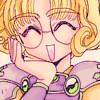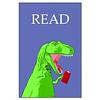Take a photo of a barcode or cover
adventurous
challenging
emotional
sad
medium-paced
Plot or Character Driven:
A mix
Strong character development:
No
Loveable characters:
No
Diverse cast of characters:
Yes
Flaws of characters a main focus:
Yes
Great! I wish I had read this and the first book (The Snow Queen) back to back instead of waiting a couple of years. It was a little difficult to get back into, but once I did it was great. Vinge has a masterful way of writing real, emotional characters who also have interesting adventures. Of course, so much plot and depth makes for a thick book, but it is worth it. A weird note, but I really loved the way the second to last (or third to last) chapter was just a goodbye among different characters. It was very sweet and good way to start wrapping things up.
adventurous
emotional
hopeful
mysterious
sad
tense
slow-paced
Plot or Character Driven:
A mix
Strong character development:
Yes
Loveable characters:
No
Diverse cast of characters:
Yes
Flaws of characters a main focus:
Yes
After the previous two books, I was really looking forward to this. Unfortunately it was a bit of a slog. She opened up the world and universe but didn't really take advantage of it. There's a lot of time spent just spinning the wheels of the plot and doing a lot of setup and then quickly resolving things. It felt bloated. It did finally pick up near the end of the book, but I just didn't enjoy this one as much as I did The Snow Queen.
The Hegemony has left Tiamat and now the people of summer have 100 years to restore the planet to readiness for their return and for the Mer to repopulate.... Dawn Moontreader Summer is the Summer queen, despite being a genetic clone of the Winter Queen, the hated Arianrhod.
What most of her people don't know is she's also a Sibyl, which will help with matters that it can, but her family is another matter altogether...
What most of her people don't know is she's also a Sibyl, which will help with matters that it can, but her family is another matter altogether...
4/5 stars
“After such knowledge, what forgiveness?” That’s a good question; I’m not sure I can completely forgive Joan Vinge for the way she just ripped my heart out.
While its prequel was a retelling of the classic fairy tale, “The Summer Queen” is postmodernist. It’s a story of the inadequacies of good intentions, of failing marriages and broken promises, of the crushing burden of regressive social norms. The archetypal fairy tale characters of the first book are expanded; as their flaws are progressively revealed, they all start to like each other less and less. Eventually, their friendships, marriages, and families crumble.
The story tackles colonialism, sexism, classism, homophobia, and environmental exploitation. However, the main focus is the character development. Despite being written before I was born, the characters grapple with personal conflicts that are still relevant today. A woman struggles with both career-limiting sexism and recurrent pregnancy loss; a young bisexual man is trapped in a conservative society and an unhappy marriage; a family is destroyed by the revelation of non-paternity. All of the happy endings from the Hans Christian Anderson story are overwritten.
My major criticism is that it’s overly long, and the plot is not as well-paced as the prequel. Part of this is explained by the fact that it’s an original story and not a retelling, but there were several meandering subplots that could be reduced or eliminated entirely. Also, the sex scenes were repetitive and stilted, without adding much to the value of the work. For that reason, I give the book 4 stars instead of 5.
Vinge’s literary career was tragically derailed by a car accident and resulting traumatic brain injury, and it seems unlikely that she will ever return to the world of Tiamat. Many of the villains never get their comeuppance, and the characters are all left to grapple with the repercussions of actions by forces beyond their control. Ironically, this appears to fit with the overarching theme of the Snow Queen Cycle. Happy endings are for fairy tales, and real life isn’t quite so simple. If you’re looking for a book that has a lot of literary merit and will also make you feel terrible inside, add this to you list.
“After such knowledge, what forgiveness?” That’s a good question; I’m not sure I can completely forgive Joan Vinge for the way she just ripped my heart out.
While its prequel was a retelling of the classic fairy tale, “The Summer Queen” is postmodernist. It’s a story of the inadequacies of good intentions, of failing marriages and broken promises, of the crushing burden of regressive social norms. The archetypal fairy tale characters of the first book are expanded; as their flaws are progressively revealed, they all start to like each other less and less. Eventually, their friendships, marriages, and families crumble.
The story tackles colonialism, sexism, classism, homophobia, and environmental exploitation. However, the main focus is the character development. Despite being written before I was born, the characters grapple with personal conflicts that are still relevant today. A woman struggles with both career-limiting sexism and recurrent pregnancy loss; a young bisexual man is trapped in a conservative society and an unhappy marriage; a family is destroyed by the revelation of non-paternity. All of the happy endings from the Hans Christian Anderson story are overwritten.
My major criticism is that it’s overly long, and the plot is not as well-paced as the prequel. Part of this is explained by the fact that it’s an original story and not a retelling, but there were several meandering subplots that could be reduced or eliminated entirely. Also, the sex scenes were repetitive and stilted, without adding much to the value of the work. For that reason, I give the book 4 stars instead of 5.
Vinge’s literary career was tragically derailed by a car accident and resulting traumatic brain injury, and it seems unlikely that she will ever return to the world of Tiamat. Many of the villains never get their comeuppance, and the characters are all left to grapple with the repercussions of actions by forces beyond their control. Ironically, this appears to fit with the overarching theme of the Snow Queen Cycle. Happy endings are for fairy tales, and real life isn’t quite so simple. If you’re looking for a book that has a lot of literary merit and will also make you feel terrible inside, add this to you list.
It's been a while since I read this book, but since I just wrote a review for the first book in the series, I thought I might as well write down some thoughts on this one.
The only strengths of this book are the strengths of the original. The world-building, the cultures, the political clash, the themes of human greed and environmentalism.
Everything else is considerably less well-edited or thought-out.
I don't care that it's dreary or sad or that marriages fail, considering the events and trauma of the first (and second) book that's hardly unexpected. I just found that I didn't care or feel emotionally invested in any of it. While Moon wasn't a perfect character in the first book, she did develop into a strong and sympathetic person in the end. All of her autonomy however was completely drained in this book - she's entirely tied up in the dudes in her life and that seems to be the end of her as a relevant character. Her daughter seems to be her replacement, but she just came off as mildly annoying and lacking in any of the traits that made the teenage Moon in Snow Queen charismatic. I don't even remember what the daughter's name is anymore!
Also this book was weirdly sexually obsessed. Everyone had a kink. You know what kind of a character they were, in fact, based on their cliched bedroom habits. I suppose the original Snow Queen had a similar flaw but considering how much more preoccupied this book is with sex, it's much more apparent. I started skipping the sex passages because I wasn't invested in the characters anymore and thus the sex seemed awfully trivial. Randomly, one of the biggest reveals in the book ended up embedded in one of these unnecessary sex scenes. Why?
The first book made fairly great strides in feminist topics. This book just dials it all back. Most of the interesting characters who actually go and CHOOSE to do interesting things are dudes. The rest of the women spend time humming and hawwing about something something feminine powers/bebbies/motherhood while being entirely reliant on these interesting, autonomous dudes (a few women start out as independent and interesting, but fear not, they quickly meet their demise at the hands of the great bebbies). Look, I actually buy the argument that some of the traditionally-feminine pastimes and "powers" can be interesting; but unlike the Snow Queen, this book completely fails to make you believe that sentiment.
That being said, some of the new cast (not all of them dudes) are pretty interesting and great additions to the story. I wouldn't have minded if this book chose to focus a lot more on these new characters while putting the old cast more in the background. The old cast, did, afterall, have a whole two books to themselves already and had gone through a ton of development already.
Considering that this book builds further on the fantastic foundation of the Snow Queen I can't really give it less than 3 stars. If you loved the world of the Snow Queen, and you want to see more, I wouldn't say that this book would ruin the experience. But there is a definite drop in quality.
The only strengths of this book are the strengths of the original. The world-building, the cultures, the political clash, the themes of human greed and environmentalism.
Everything else is considerably less well-edited or thought-out.
I don't care that it's dreary or sad or that marriages fail, considering the events and trauma of the first (and second) book that's hardly unexpected. I just found that I didn't care or feel emotionally invested in any of it. While Moon wasn't a perfect character in the first book, she did develop into a strong and sympathetic person in the end. All of her autonomy however was completely drained in this book - she's entirely tied up in the dudes in her life and that seems to be the end of her as a relevant character. Her daughter seems to be her replacement, but she just came off as mildly annoying and lacking in any of the traits that made the teenage Moon in Snow Queen charismatic. I don't even remember what the daughter's name is anymore!
Also this book was weirdly sexually obsessed. Everyone had a kink. You know what kind of a character they were, in fact, based on their cliched bedroom habits. I suppose the original Snow Queen had a similar flaw but considering how much more preoccupied this book is with sex, it's much more apparent. I started skipping the sex passages because I wasn't invested in the characters anymore and thus the sex seemed awfully trivial. Randomly, one of the biggest reveals in the book ended up embedded in one of these unnecessary sex scenes. Why?
The first book made fairly great strides in feminist topics. This book just dials it all back. Most of the interesting characters who actually go and CHOOSE to do interesting things are dudes. The rest of the women spend time humming and hawwing about something something feminine powers/bebbies/motherhood while being entirely reliant on these interesting, autonomous dudes (a few women start out as independent and interesting, but fear not, they quickly meet their demise at the hands of the great bebbies). Look, I actually buy the argument that some of the traditionally-feminine pastimes and "powers" can be interesting; but unlike the Snow Queen, this book completely fails to make you believe that sentiment.
That being said, some of the new cast (not all of them dudes) are pretty interesting and great additions to the story. I wouldn't have minded if this book chose to focus a lot more on these new characters while putting the old cast more in the background. The old cast, did, afterall, have a whole two books to themselves already and had gone through a ton of development already.
Considering that this book builds further on the fantastic foundation of the Snow Queen I can't really give it less than 3 stars. If you loved the world of the Snow Queen, and you want to see more, I wouldn't say that this book would ruin the experience. But there is a definite drop in quality.
First of all thanks to those of you who read my review of the Snow Queen and insisted that I continue with the series, that the issues I had with book 1 were part of the reason the world had to change, and I would see a much better outcome in The Summer Queen.
You were right.
Minor characters became major characters: Jerusha and Gundi get their happy endings (although they pay a very high price for them), and Moon and Sparks have a growth arc that is nearly perpendicular.
The worldbuilding continues to shine. Vinge can write. I still say check your trigger warnings before reading. This is a classic written 30+ years ago and there are some ideas that have not aged well. On the other hand, it is sad how many things have not yet changed in fantasy or in reality.
You were right.
Minor characters became major characters: Jerusha and Gundi get their happy endings (although they pay a very high price for them), and Moon and Sparks have a growth arc that is nearly perpendicular.
The worldbuilding continues to shine. Vinge can write. I still say check your trigger warnings before reading. This is a classic written 30+ years ago and there are some ideas that have not aged well. On the other hand, it is sad how many things have not yet changed in fantasy or in reality.
I really enjoyed this follow-up to the Snow Queen. I honestly felt the romance was far better and the anxiety was higher as well. You get a lot more of that sci-fi and politics woven in. The characters are incredibly flawed and aggravating which just makes the whole thing seem more relatable. Can't say too much because of spoilers but you get a lot of representation in this book which is good to see and if you liked Snow Queen I don't see how you would not like this. The book is incredibly long though and the text is the same font size as the Bible. If you could do a word count I swear it would be just as long as any of the Brandon Sanderson Stormlight books.
An excellent book, if overlong (it probably should have been split in two).
I feel like this should be A-list science fiction, that every genre fan is at least aware of. But I don't think it is, and I wonder why.
Strangely, a chapter from early in the previous book in the series, World's End, is included in this one. When I found that, I thought that the entire text of World's End was going to be interspersed through this book (which has chapters that jump between different viewpoint characters on different planets, so that would fit in pretty well). But it wasn't; just one chapter was repeated.
I feel like this should be A-list science fiction, that every genre fan is at least aware of. But I don't think it is, and I wonder why.
Strangely, a chapter from early in the previous book in the series, World's End, is included in this one. When I found that, I thought that the entire text of World's End was going to be interspersed through this book (which has chapters that jump between different viewpoint characters on different planets, so that would fit in pretty well). But it wasn't; just one chapter was repeated.







